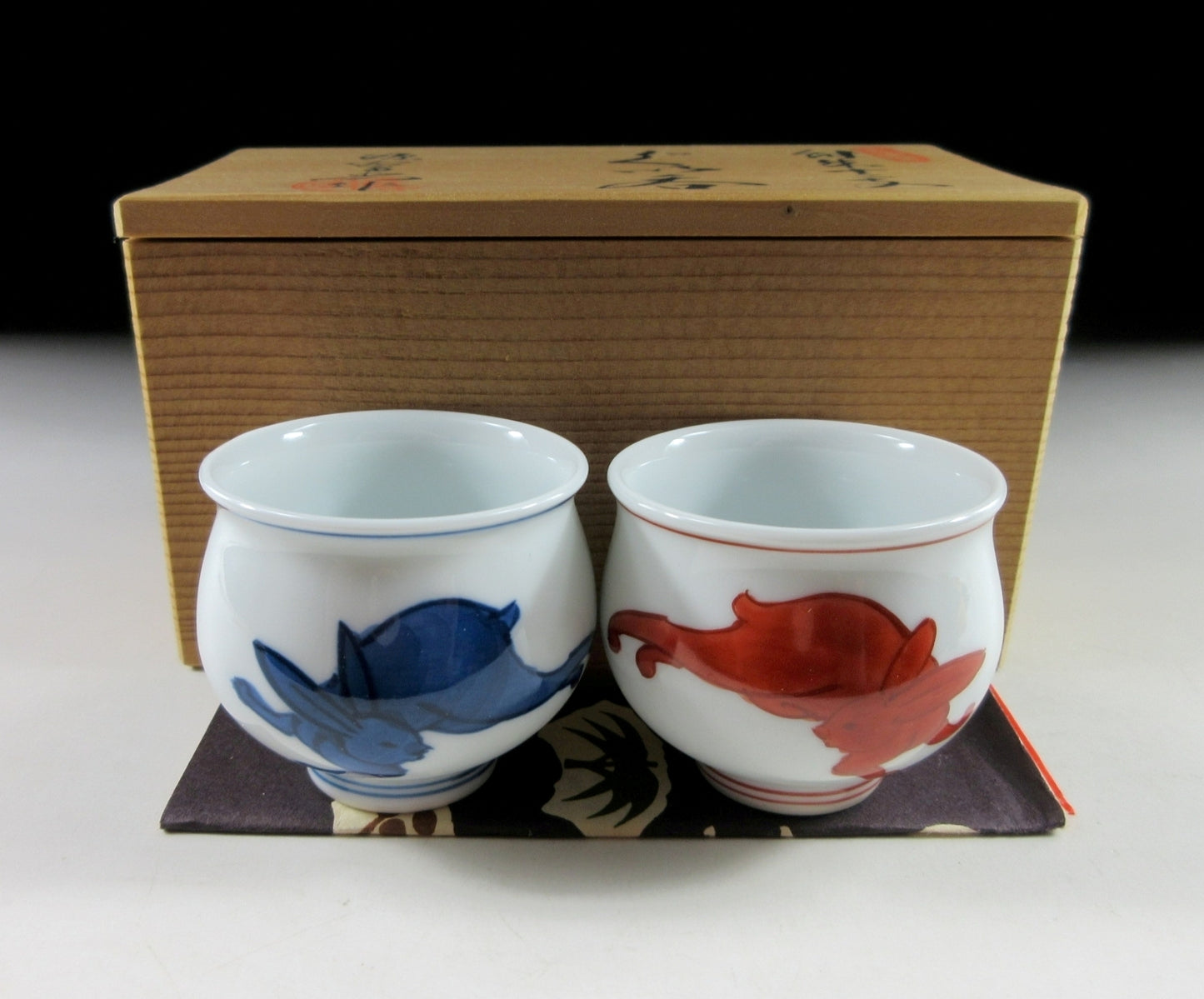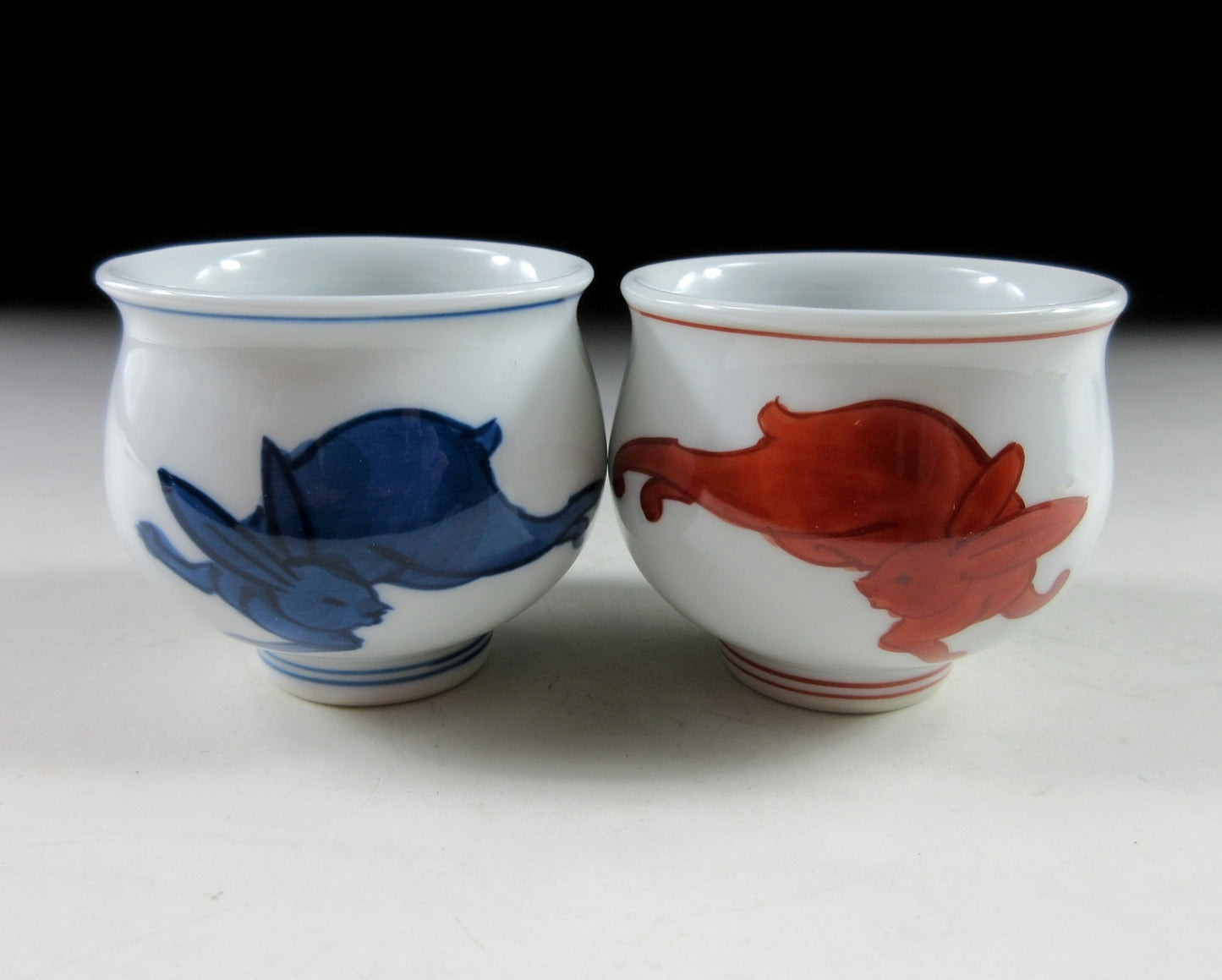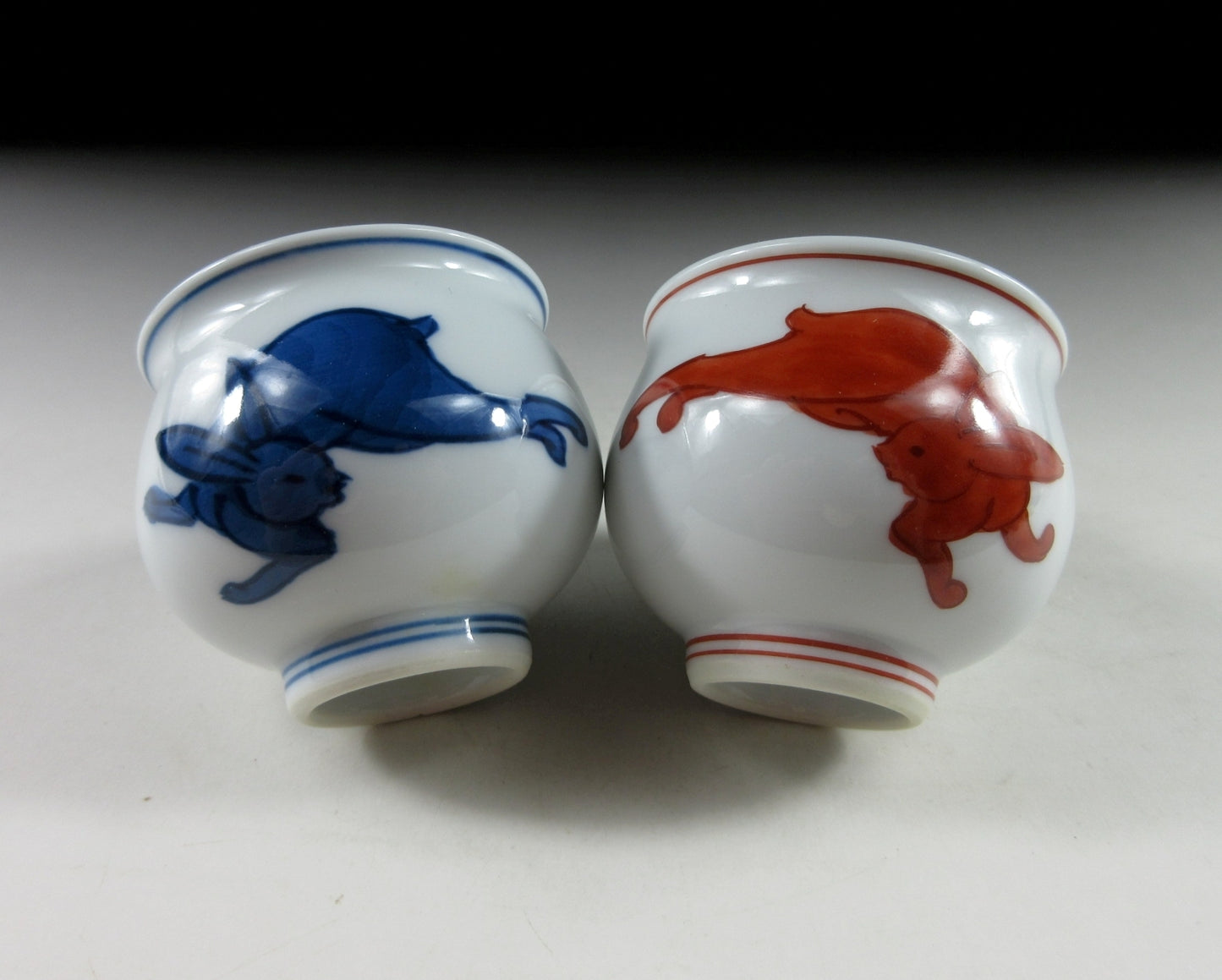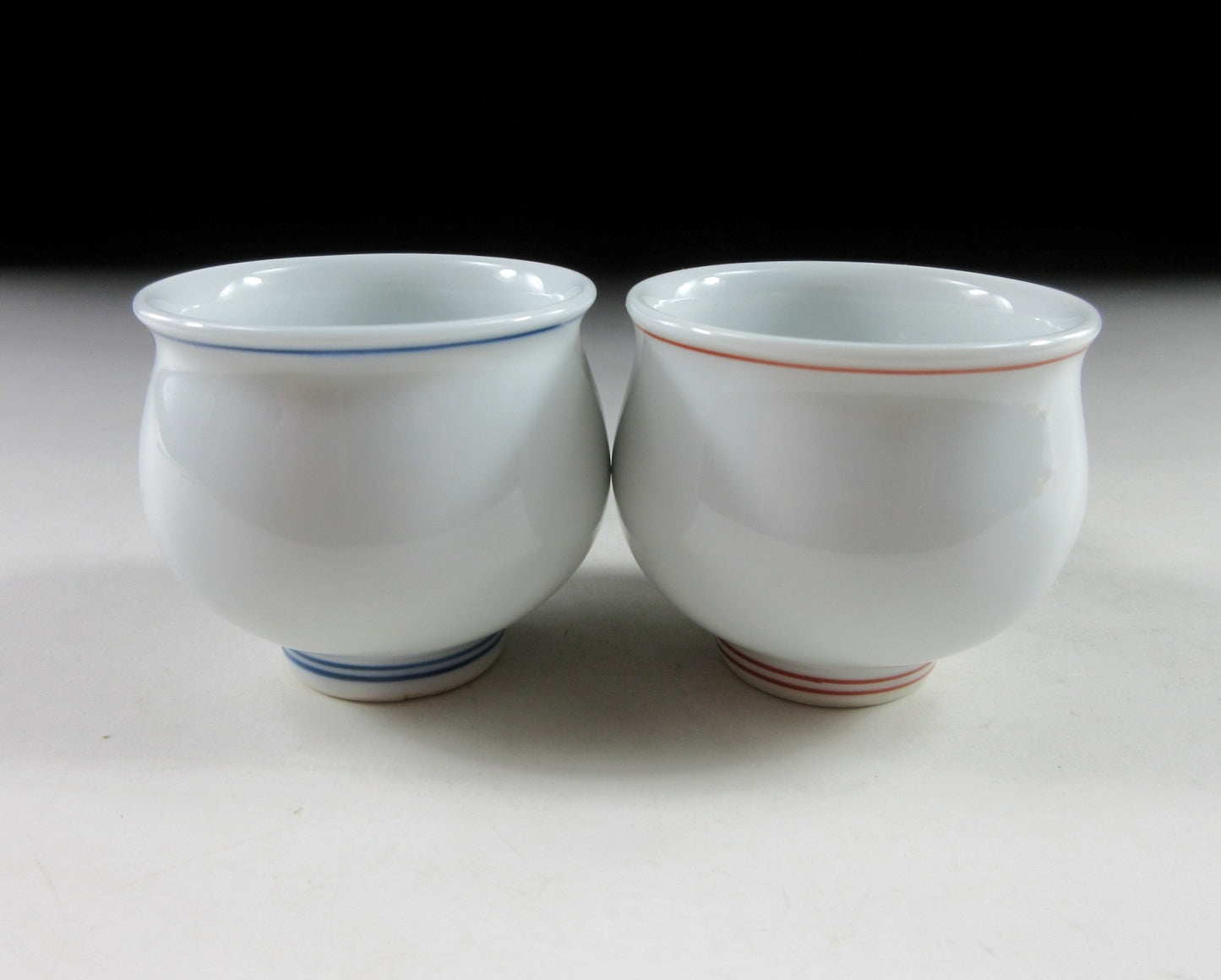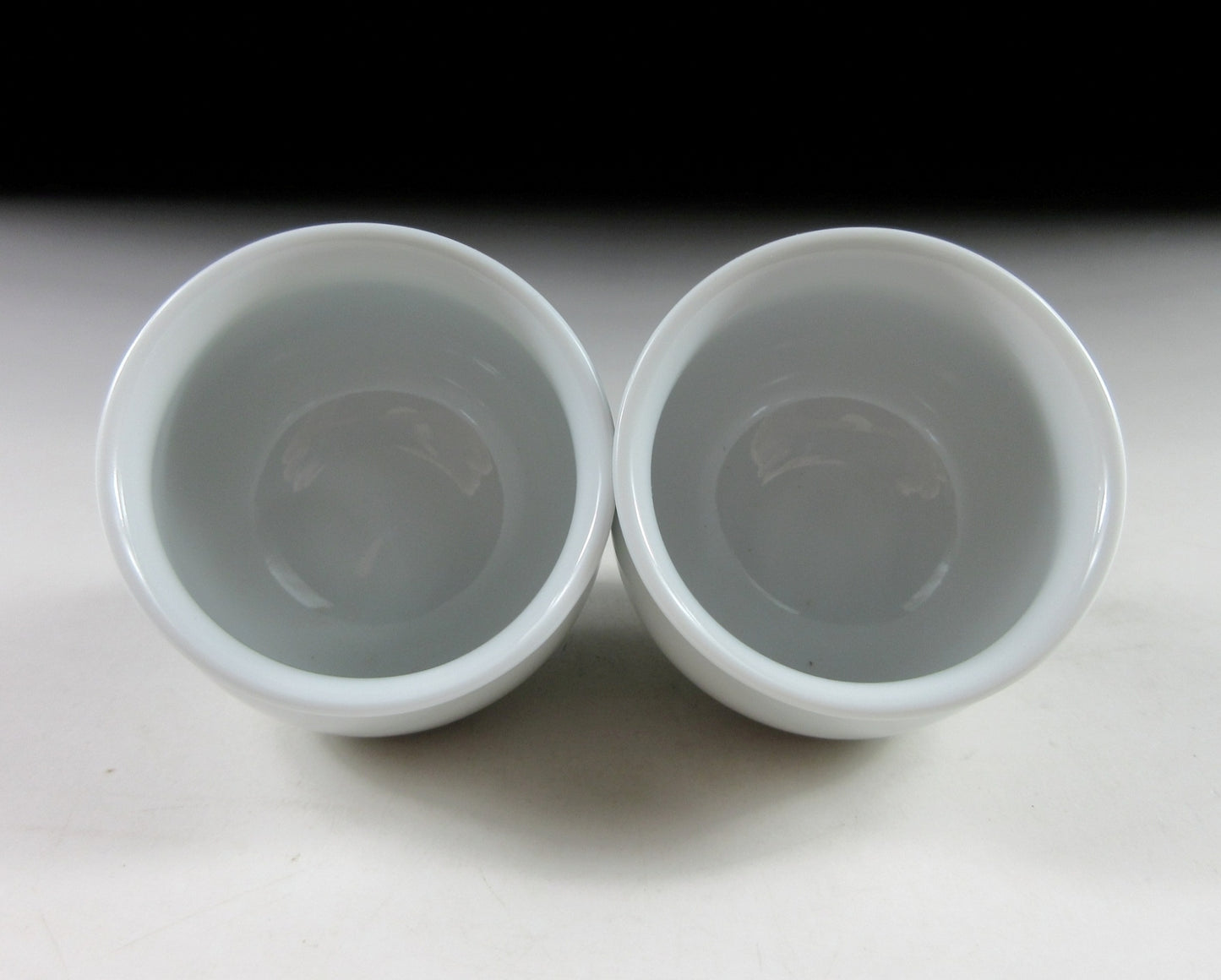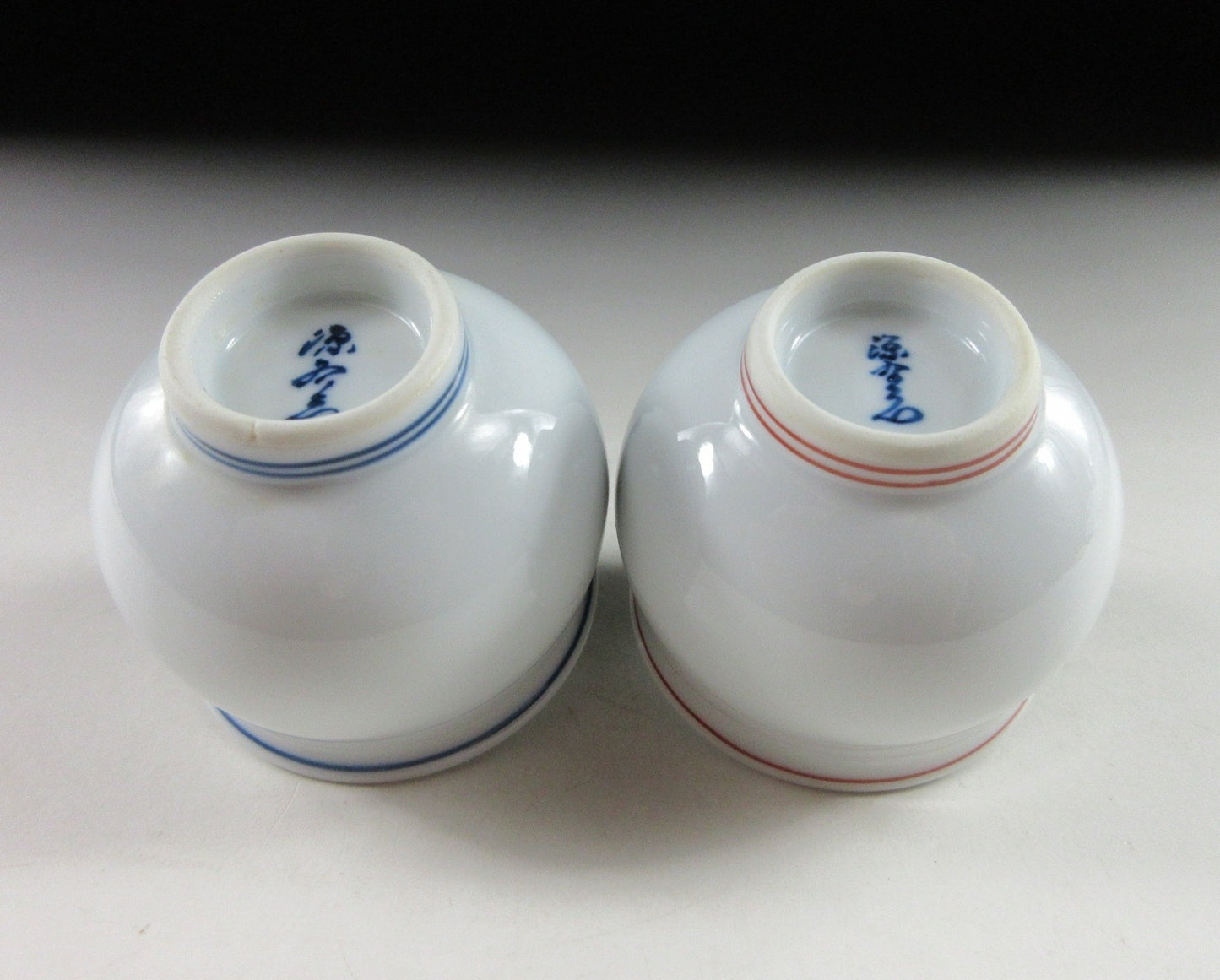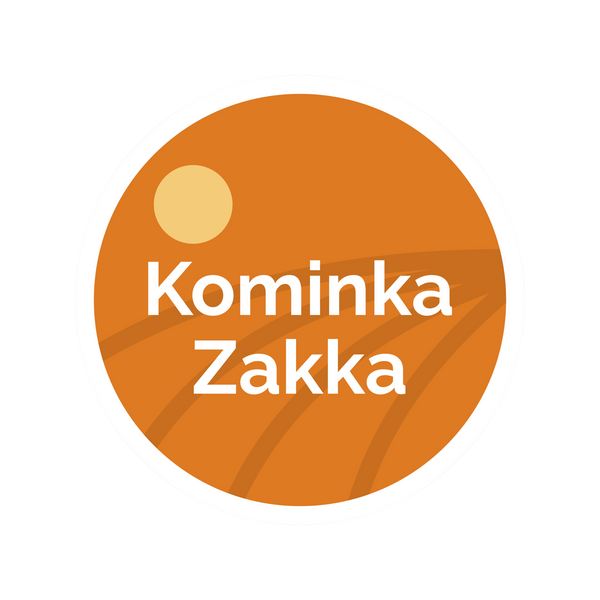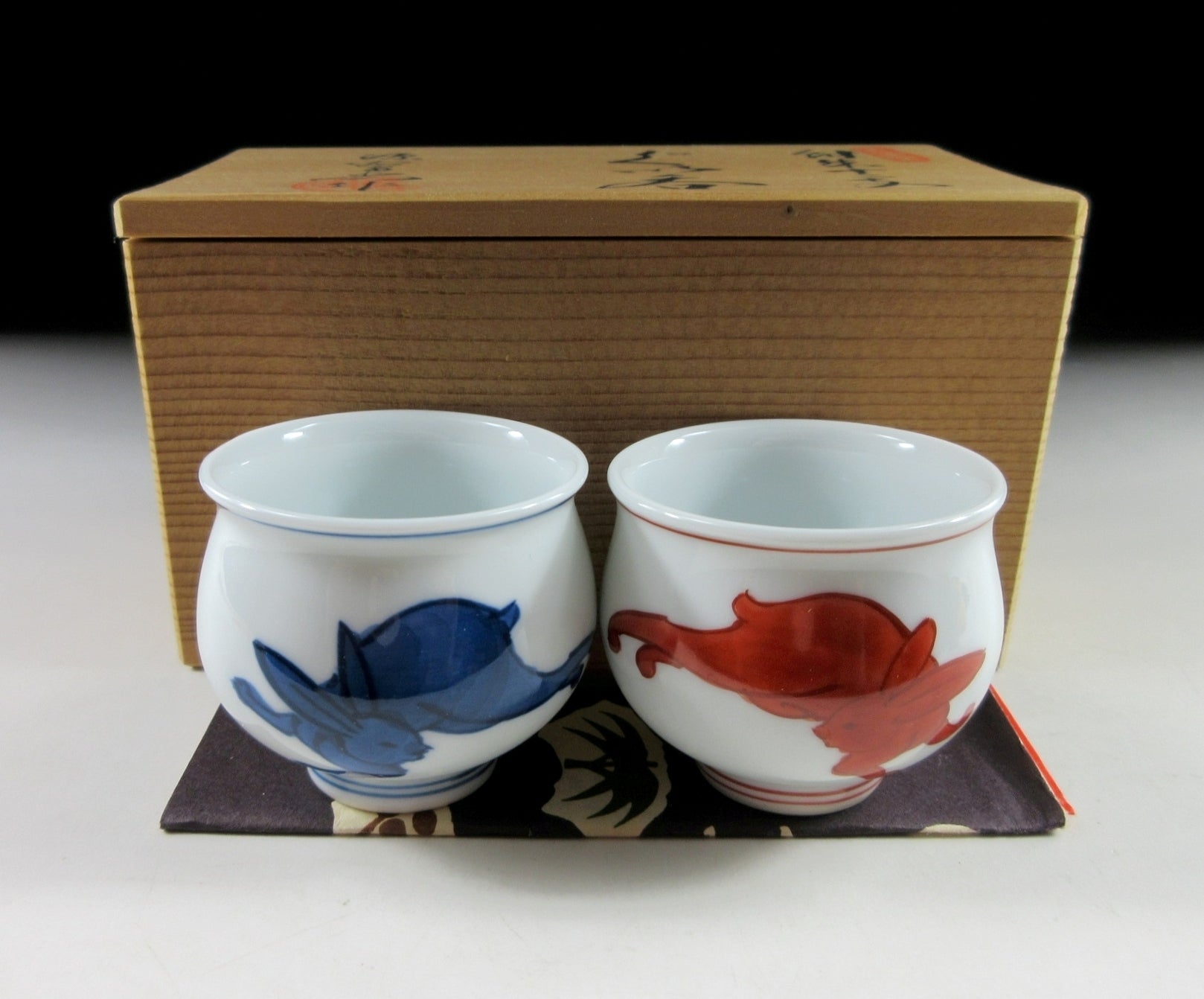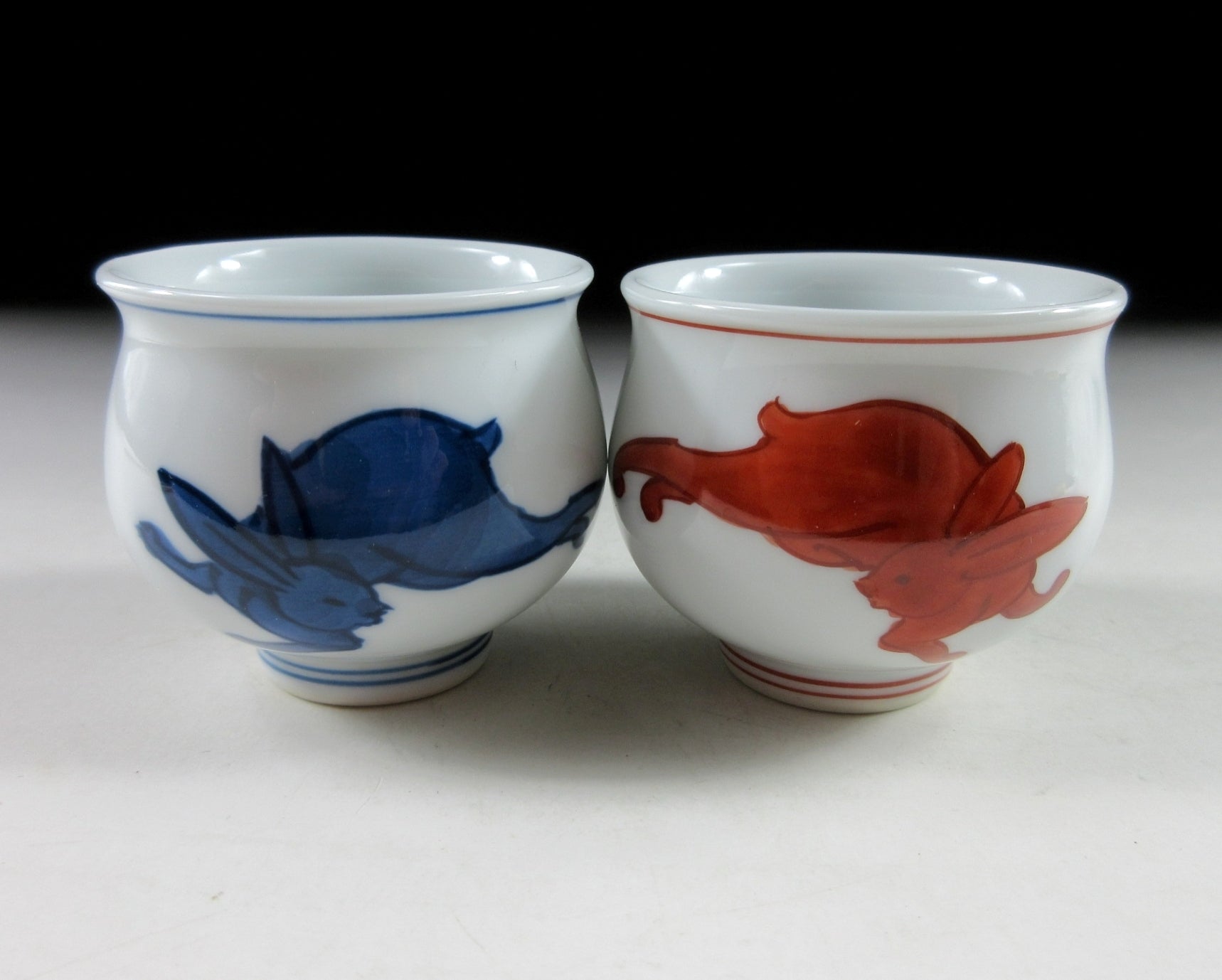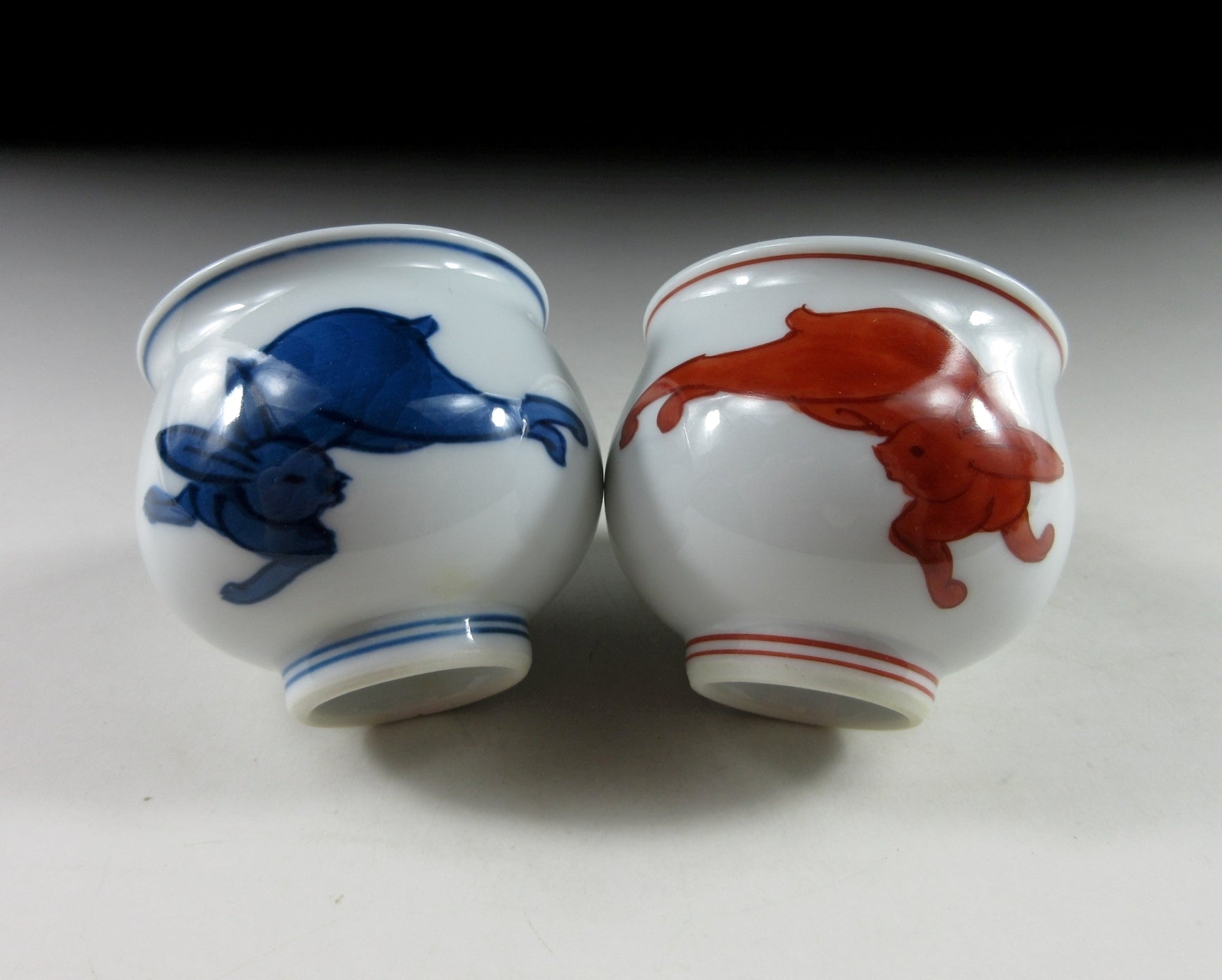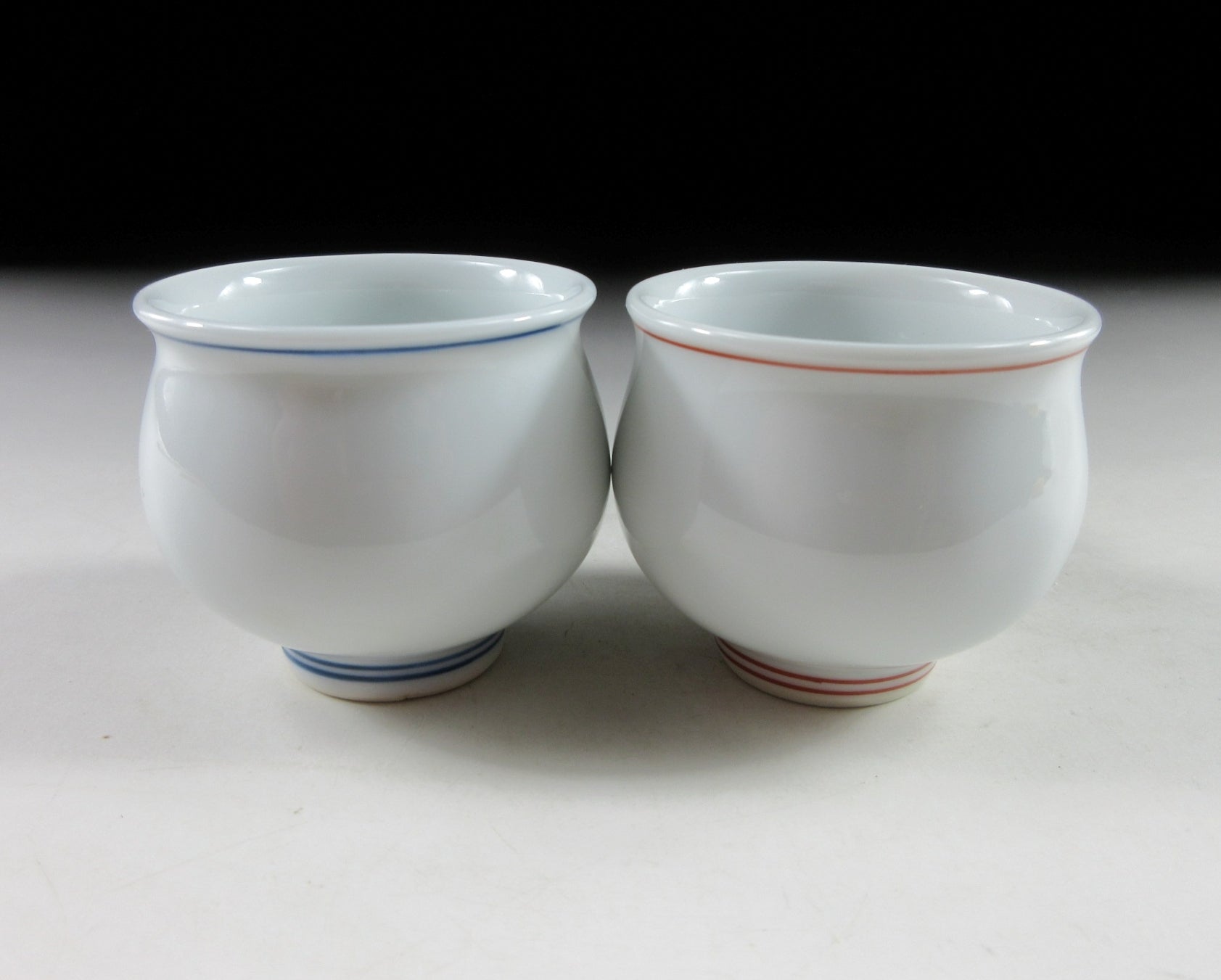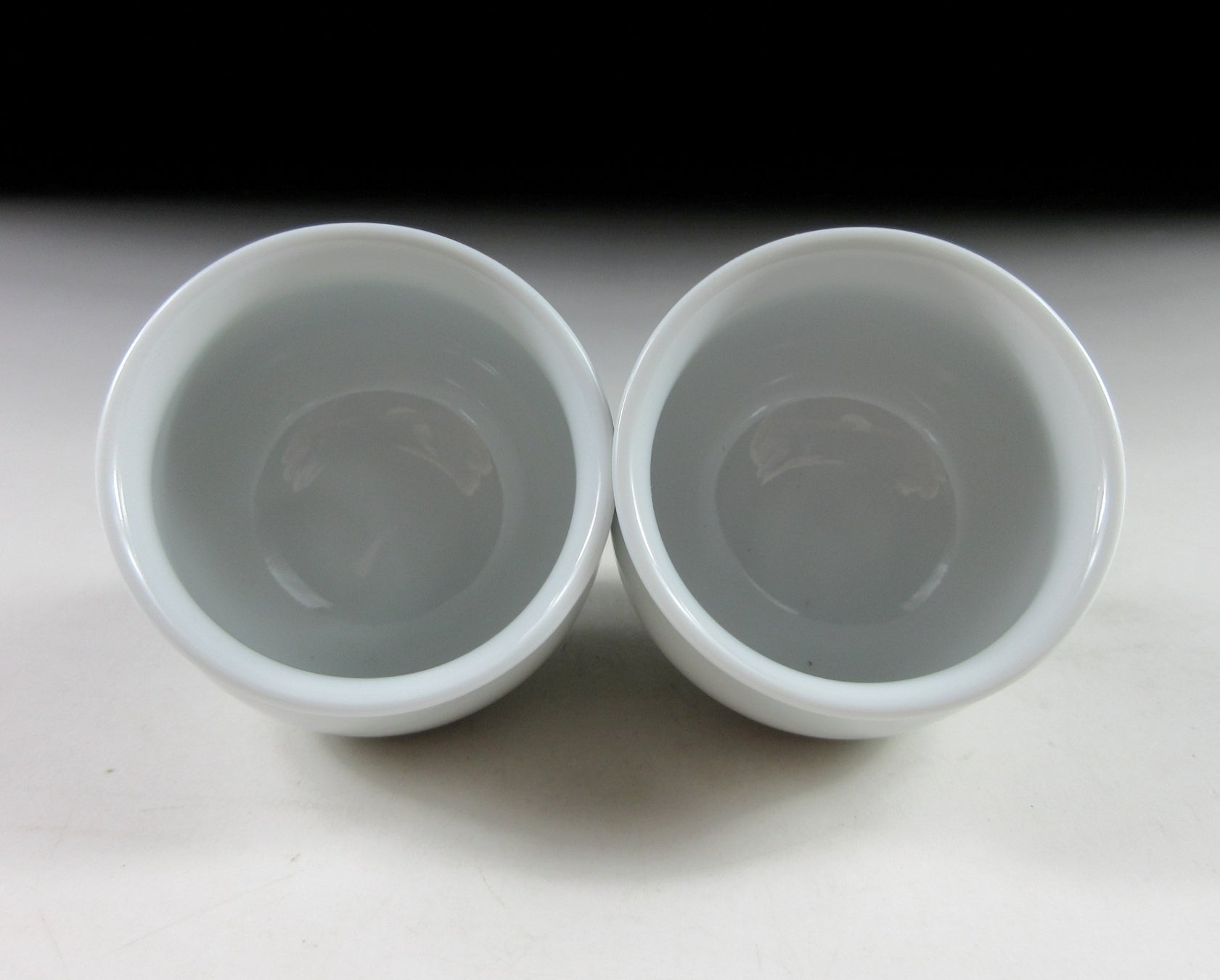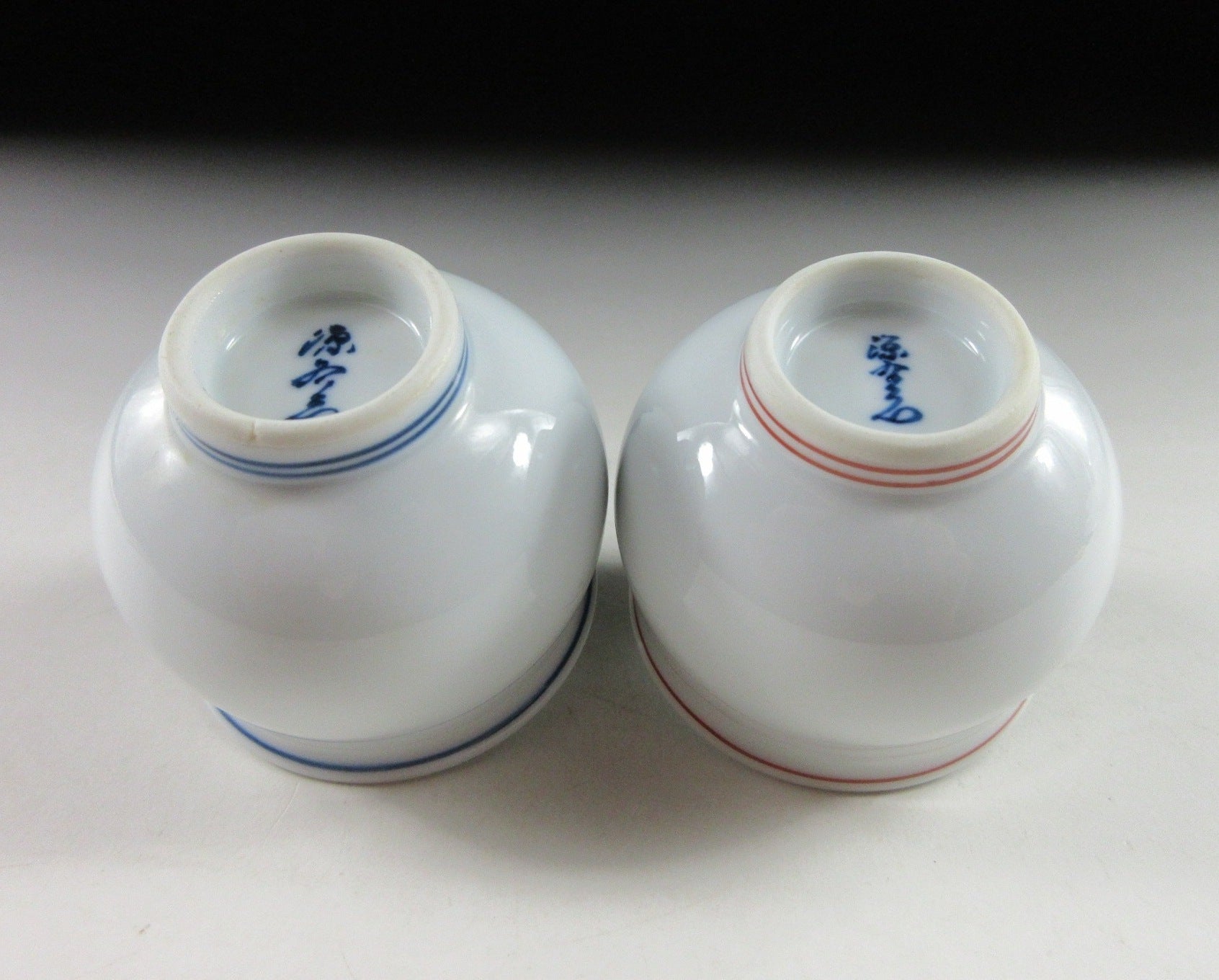Kominka Zakka
Gen-emon Kiln Year of the Rabbit Sake Cups #1
Gen-emon Kiln Year of the Rabbit Sake Cups #1
Couldn't load pickup availability
*SHIPPING OPTIONS VARY DEPENDING ON THE DESTINATION, PLEASE SCROLL TO THE END OF THIS LISTING FOR MORE DETAILS.
This listing is for a pair of hand-painted Arita-ware sake cups made by the prestigious Gen-emon kiln. They are made of porcelain and are decorated with hand-painted depictions of blue and red rabbits over a white porcelain background. The cups are small in size and were most likely made to commemorate the Year of the Rabbit back in 1999. The signature of the kiln can be found on the bottom of each cup, and they come with their original signed wooden storage box. They also come with Japanese language profile papers about Gen-emon kiln and the history of Arita-ware.
The prestigious Gen-emon kiln was established in the late 1700s in Zemeki, Arita. It was designated as a kiln for producing artistic and decorative porcelain, and to remain competitive Gen-emon V went on to improve upon the conventional techniques and designs of Old Imari. Gen-emon VI expanded the traditional techniques and took the craft in a new direction. His idea was to bring the beauty of old Imari to everyday people, so he began to develop a line of household tableware. This marked a new era in Japanese tableware, as it was now possible to enjoy more beautiful and creative lifestyles. These days their wares still reflect traditional Imari styles along with contemporary tastes. Each product is produced by highly trained artisans. Each artisan has a specific role - throwing, painting, glazing, and firing – and this ensures that Gen-emon maintains its high level of quality.
Arita-ware refers to porcelain produced in the town of Arita in the southern island of Kyushu. In 1616 a Korean potter named Ri Sanpei discovered kaolin at Mt. Izumiyama, thus resulting in the birth of Japanese porcelain. Arita-ware is sometimes referred to as Imari-ware, and this is because export wares were shipped from the nearby port in Imari town. Edo period Arita-ware is generally classified into three groups; Ko-Imari (Early Imari), Kinrande (gold painted porcelain), and Kakiemon (elegant motifs of birds, animals and flowers). Another special, high quality porcelain known as Nabeshima (featuring woven/textile patterns) was also produced and given as gifts to the Imperial court and ruling class. To this day Arita remains at the centre of porcelain production in Japan.
Sizes
Box: H.7.8cm (3”) x 14cm (5.5”) x 7.1cm (2.7”)
Cups: H.4.3cm (1.6”) x Dia.5cm (1.9”)
Condition
Both cups are in very good condition with no chips or cracks.
THESE ARE SHIPPING ESTIMATES BASED ON THE CURRENT GLOBAL SITUATION
**Germany, France, Greece, Spain, Poland, Austria, Slovakia, Lithuania, Slovenia: NO SHIPPING. Very strict and expensive packaging laws in place and we are not licensed to send products to these countries. We have no plan to register at this time because the process is in some cases very expensive and complicated, plus each country has its own set of regulations and application process.
**USA, UK, Canada, Australia, New Zealand, Switzerland, Norway: Airmail Small Packet (approx. 15-28 days). Combined shipping available up to 2kgs for Airmail Small Packet (please send us a message).
**Asia: Airmail Small Packet (approx. 15-21 days). Combined shipping available up to 2kgs for Airmail Small Packet (please send us a message).
**Central Asia, Middle East, South Africa, Brazil, Mexico: EMS Express 10-15 days.
**Russia: No shipping methods available.
Share
